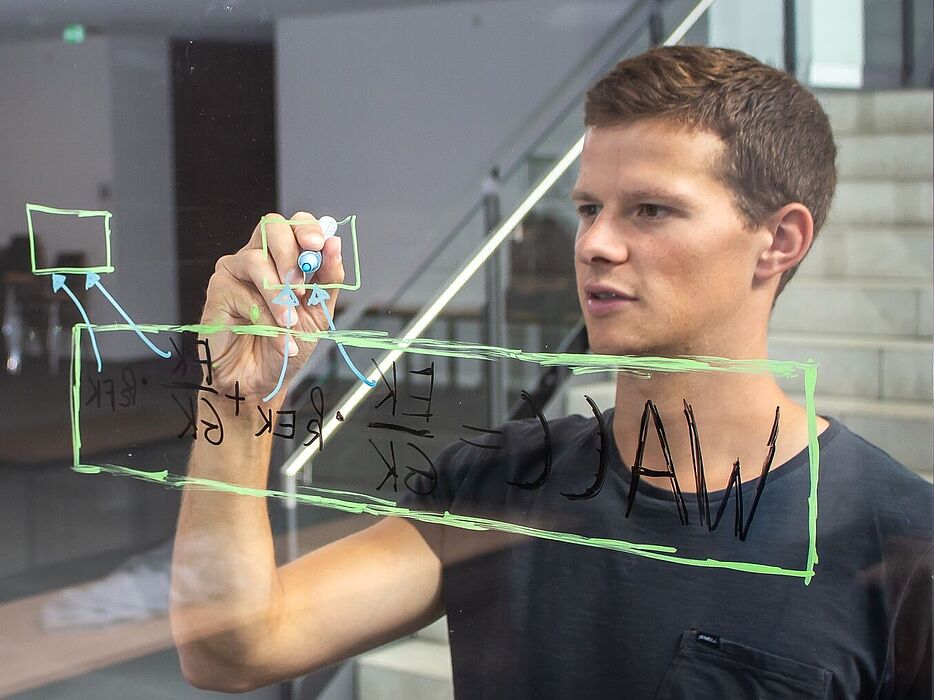Lennart never wanted to study and is now planning his Master's degree
Finally out of school and into working life: Studying was out of the question for Lennart. He is now doing his Bachelor's degree in Economics at Paderborn University - and he doesn't want it to be his last university degree.
Studying? Absolutely not!
Unlike most people, Lennart didn't start studying straight after leaving school or taking a gap year, but instead opted for an apprenticeship. As a bank clerk at Sparkasse.
"I couldn't imagine studying after my A-levels at all. I wanted to put an end to school for the time being," admits the 24-year-old. He wanted to earn money straight away and start his career.
Commercial training was important to him, as he had always found business and the like exciting. "I was also interested in banking and the stock market and I wanted a job with customer contact." Lennart was also impressed by the breadth of the programme: he worked in several departments during his 2.5-year apprenticeship and was therefore able to gain a wide range of experience and discover his interests.
Or university after all?
Only there was often a problem: the positions that Lennart could imagine for his future were often unattainable without a degree. He wasn't interested in just working in private customer advisory services and wanted to immerse himself in other fields of banking.
So he decided to add a degree after his banking qualification. "Economics was the degree programme that had thematic overlaps with my training and sounded good."
Initially, he found both fields, economics and business administration, very interesting. "During my studies, I realised that my path was more in the direction of business administration." He is now specialising in the field of Taxation, Accounting and Finance, particularly in the areas of taxation and accounting.
Maths course doesn't have to be
At the time, his teachers certainly didn't necessarily think that Lennart would do something with numbers. "I'm a person with an affinity for numbers, but I didn't have a maths course or consistently get straight A's in the subject area." And yet he trained as a bank clerk, completed a Bachelor's degree in economics and would like to do a Master's in Taxation, Accounting and Finance. How does that fit together? "Sure, I had and still have a lot to do with numbers. But here I see more sense behind it and have a better connection to it. That makes it more tangible for me than at school."
Nothing was in vain
When it came to his studies, it was clear that the knowledge gained from his apprenticeship as a bank clerk would bring a number of advantages: whether it was a rental agreement, insurance or finances in general - Lennart knew his way around. But it wasn't just about that, his training often helped him during his studies: "I knew my way around accounting and some of the modules covered topics that I already had some prior knowledge of. That definitely didn't do me any harm."
Lennart has not only developed professionally, but also personally during his three years at the bank. He has retained the clear structure of working hours and is disciplined in his approach to tasks. In general, he is simply a little older and more mature, he says. "You have a different view of life and are more determined."
Do you want that too?
Discover the diversity of economics in our Bachelor's degree programmes. Each degree programme usually lasts six semesters and prepares you for a career start or a postgraduate Master's degree.
Information about

